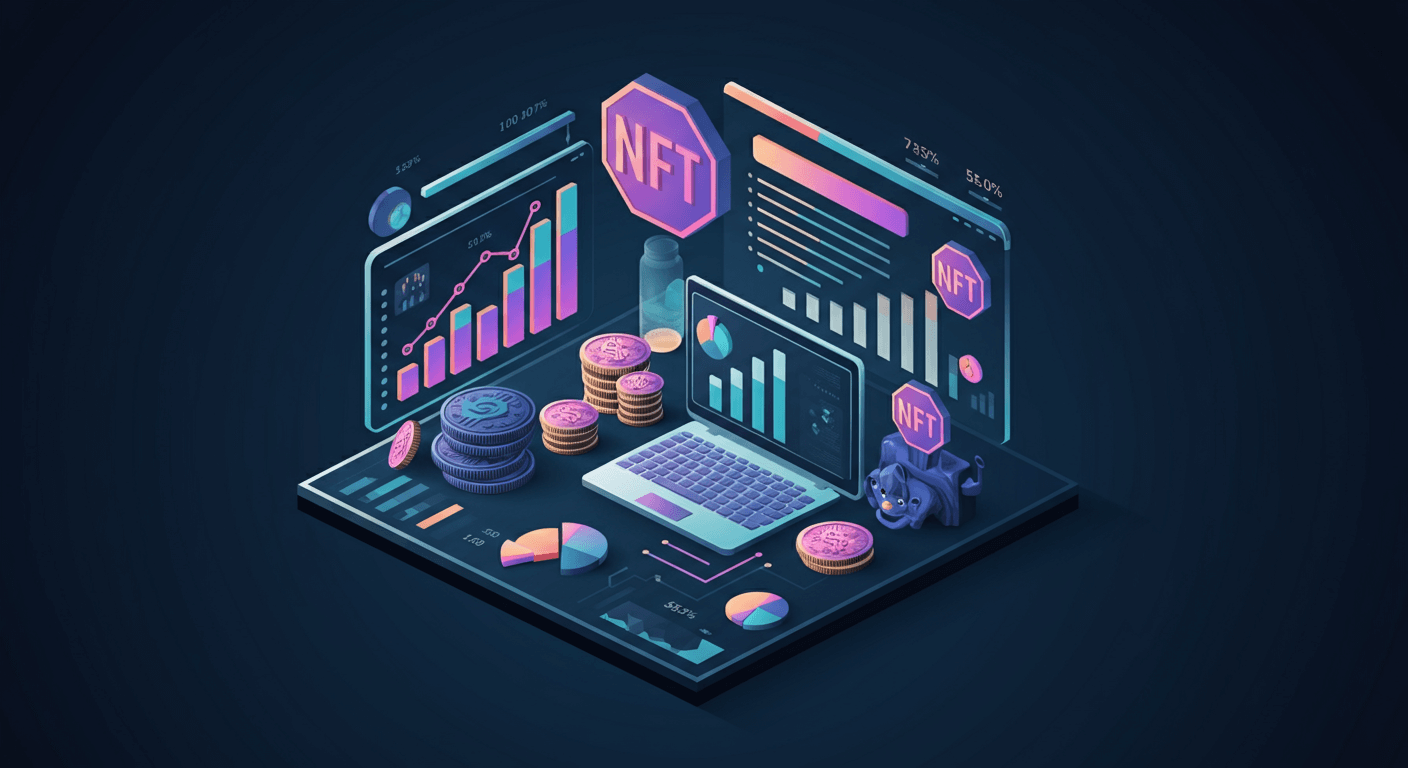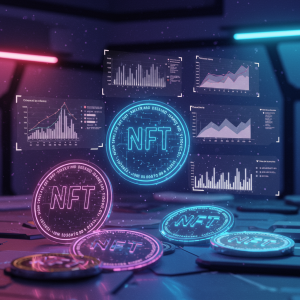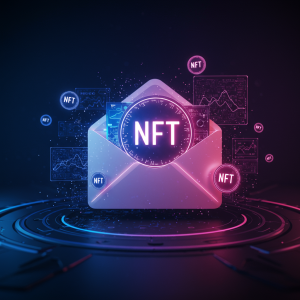What Does NFT Mean in the Stock Market: Understanding the Connection

Non-fungible tokens (NFTs) and the stock market represent different investment ecosystems that increasingly influence each other. While NFTs primarily exist on blockchain networks separate from traditional financial markets, their growing popularity has created notable connections to publicly traded companies and investment strategies.
Defining NFTs in a Financial Context

In the stock market context, NFTs are not directly tradable securities. Unlike stocks, which represent fractional ownership in companies, NFTs represent verifiable ownership of unique digital assets. This fundamental difference explains why you won’t find NFTs listed on the NYSE or NASDAQ alongside traditional equities.
However, at NFT Marketo, we’ve observed that understanding NFTs has become increasingly important for stock market investors as the technology impacts various publicly traded companies and creates new investment opportunities.
NFT-Related Stocks and ETFs
The most direct connection between NFTs and the stock market comes through companies with significant NFT exposure. These include:
Cryptocurrency exchanges that facilitate NFT trading, such as Coinbase (NASDAQ: COIN), have seen their stock prices influenced by NFT market trends. When NFT trading volumes surge or decline, these stocks often respond accordingly.
Gaming and entertainment companies implementing NFT strategies, including Electronic Arts (NASDAQ: EA) and Funko (NASDAQ: FNKO), have incorporated NFTs into their business models, affecting investor sentiment.
Blockchain infrastructure companies providing the technological foundation for NFT creation and trading represent another investment avenue connected to the NFT ecosystem.
According to Bloomberg’s market analysis, the correlation between crypto-related stocks and underlying digital assets has been decreasing, suggesting that stock investors are developing more nuanced views of how blockchain technologies like NFTs affect company fundamentals.
NFTs as Alternative Investments

Within broader investment portfolios, NFTs represent an alternative asset class that some stock market investors utilize for diversification. Financial advisors may discuss NFT allocation alongside traditional securities, though typically as a much smaller and higher-risk portion of overall investment strategies.
Professional investors increasingly approach NFTs not as replacements for stocks but as complementary assets with different risk profiles and potential returns. This perspective positions NFTs similarly to how art, collectibles, or other alternative investments relate to traditional securities.
Tokenization of Securities
Perhaps the most promising intersection between NFTs and the stock market lies in the emerging field of security tokenization. This innovation uses blockchain technology to represent traditional financial assets, including stocks, as digital tokens.
Unlike conventional NFTs focused on digital art or collectibles, security tokens must comply with existing securities regulations while leveraging blockchain benefits like fractional ownership, programmable compliance, and 24/7 trading potential.
Several projects are exploring how NFT technology can enhance traditional securities by creating tokenized stock offerings that combine attributes of both worlds. These developments could eventually transform how shares are issued, traded, and settled.
Institutional Adoption Impact
Major financial institutions have begun exploring NFT markets, recognizing potential long-term significance beyond initial speculation. Their involvement affects both NFT valuations and related stock performance:
Investment banks developing NFT trading services may see new revenue streams reflected in their stock valuations.
Payment processors enabling NFT transactions position themselves advantageously as digital asset markets mature.
Asset management firms creating NFT exposure vehicles allow traditional investors to gain market access without direct token ownership.
Investment Considerations
For stock market investors considering NFT exposure, several approaches exist:
Direct investment in companies developing NFT technologies or marketplaces offers familiar stock market mechanics with exposure to NFT growth.
Blockchain-focused ETFs provide diversified exposure to companies operating in the broader crypto ecosystem, including those with NFT components.
Direct NFT ownership can complement a stock portfolio but requires different analysis skills and risk management approaches than equity investing.
Regulatory Perspective
Stock market regulations and NFT oversight are evolving along separate but occasionally intersecting paths. The Securities and Exchange Commission has shown increasing interest in digital assets, particularly when they might qualify as securities under existing frameworks.
This regulatory evolution creates both risks and opportunities for companies operating at the intersection of traditional markets and NFT technology. Investors should monitor how changing regulations might affect both NFT valuations and related stocks.
The Future Relationship
The relationship between NFTs and the stock market continues to evolve as blockchain technology matures. Several potential developments could strengthen their connection:
Increased integration of NFT functionality into traditional financial products and services offered by publicly traded companies.
The emergence of regulated NFT derivatives that allow for more sophisticated trading strategies similar to options or futures contracts in conventional markets.
Greater institutional participation creating more formalized valuation models that help both NFT collectors and stock investors make informed decisions.
Conclusion
While NFTs aren’t directly tradable on stock exchanges, their growing economic and technological significance creates meaningful connections to the traditional financial markets. Understanding these relationships helps investors navigate both ecosystems more effectively.
For those seeking to explore the intersection of NFTs and traditional investment strategies, NFT Marketo provides resources to help bridge the knowledge gap between these evolving financial technologies.
As blockchain technology continues reshaping our understanding of ownership and value exchange, the distinction between NFT markets and traditional securities may blur further, creating new investment paradigms that incorporate elements from both worlds.





